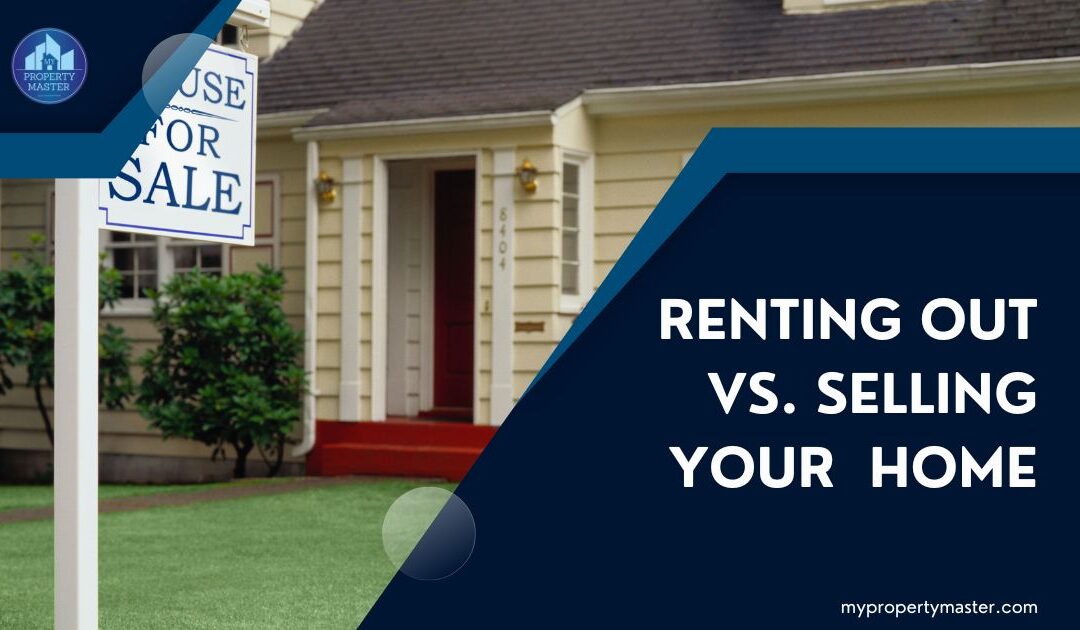Deciding whether to rent or sell your home is a pivotal decision with long-lasting financial and lifestyle implications. Each option has pros and cons.
In this post, I will explain the complexities of renting versus selling your home, providing the knowledge and insight you need to navigate this important decision.
Let’s get started.
Understanding the financial landscape
One of the primary considerations when deciding between renting and selling your home is the financial aspect. Let’s dig into the key economic factors associated with each option:

Selling your home
When you sell your home, you typically receive a lump sum of equity, providing immediate cash flow. This inflow of funds can be beneficial for various purposes, such as investing in a new property, paying off debt, or funding other financial goals.
Additionally, selling your home allows you to capitalize on any appreciation in its value, potentially resulting in a significant profit.
Related: 11 Essential things that landlords must know before selling a house
What is equity?
The difference between the market value of your property and any outstanding mortgage debt is known as equity.
When you sell your home, the equity is the amount you receive after paying off any remaining mortgage balance and other associated selling costs, such as realtor commissions, closing fees, etc.
Sometimes, selling your home may result in receiving a lump sum of equity if the sale proceeds exceed the remaining mortgage balance and selling expenses.
However, if the sale price is lower than the outstanding mortgage debt and selling costs, you need additional funds to satisfy the mortgage lender and complete the sale.
Renting out your home
On the other hand, renting out your home generates a steady income stream through rental payments. It gives you reliable cash flow over the long term, supplementing your income and covering mortgage payments, property taxes, and maintenance expenses.
Moreover, by retaining ownership of the property, you continue to benefit from any appreciation in its value over time.
Seller’s market

In a seller’s market, where demand for homes exceeds supply, selling your property may produce a higher price and quicker transaction.
Buyers may be willing to pay a premium for homes in desirable locations, allowing you to maximize your return on investment.
In a seller’s market, there is typically high demand for homes but limited inventory available for sale. As a result, sellers may have more leverage in negotiations and command higher sale prices for their properties.
Additionally, properties in a seller’s market often sell more quickly due to the high demand, as buyers are eager to secure a home in a competitive market.
Related: How can you sell a house with a mortgage?
Buyer’s market
Conversely, selling your home may be more challenging in a buyer’s market characterized by abundant available properties and limited buyer demand. Prices may stagnate or decline, leading to longer listing times and potential concessions to attract buyers.
Rental market dynamics
Similarly, the rental market plays a significant role in determining the feasibility of renting out your property. Factors such as rental vacancy rates, job growth, and population trends can impact rental demand and achievable rental income.
Conducting thorough market research can help you gauge the rental potential of your property and make an informed decision.
Read also: Who pays the rental broker fee?
Considering long-term goals
When deliberating between renting and selling your home, it’s essential to align your decision with your long-term financial objectives and lifestyle preferences. Here are some key considerations to keep in mind:
Investment strategy
If you view your home as an investment asset, consider whether selling or renting aligns better with your investment strategy. Selling may provide immediate liquidity to pursue other investment opportunities, while renting offers the potential for ongoing rental income and long-term appreciation.
Future housing needs
Evaluate your future housing needs and how they align with your decision to rent or sell your home. If you anticipate relocating in the near future or require flexibility in your living arrangements, renting may be a more suitable option.
On the other hand, selling your home could be the preferred choice if you’re looking for a permanent change of residence or wish to downsize.
Assessing maintenance and responsibilities

Consider maintenance and responsibilities associated with each option. Let’s explore the implications of property management and upkeep:
Selling your home
When you sell your home, you transfer ownership and relinquish responsibility for property maintenance and management.
It can be a significant relief if you prefer to avoid the time and effort required to maintain a property, especially if you are relocating to a different area or downsizing.
Related: Can you sell a house before probate?
Renting out your home
On the contrary, renting out your home entails ongoing maintenance, tenant management, and potential landlord duties. At the same time, rental income can offset some of these costs. As a landlord, you must address maintenance issues promptly, ensure compliance with rental regulations, and manage tenant relationships effectively.
Read also: Landlord Vs. Tenant: Who is responsible for what?
Cost considerations
Before deciding whether to rent or sell your home, it’s essential to assess the associated costs and financial implications of each option. Consider the following factors:
Selling costs
You’ll incur various expenses when selling your home, including realtor commissions, closing costs, and potential home staging expenses.
Additionally, if you have an existing mortgage on the property, you must settle any outstanding balances upon sale.
Rental expenses
Renting out your home also has expenses, such as property taxes, insurance premiums, maintenance and repairs, property management fees (if applicable), and vacancy costs.
Landlords should budget accordingly to cover these expenses and ensure the profitability of their rental investment.
Read also: How to terminate a property management agreement?
Market analysis and risk management

Before deciding to rent or sell your home, conduct a comprehensive market analysis and assess the potential risks associated with each option.
Let’s explore these considerations in more detail:
Comparative Market Analysis (CMA)
CMA estimates the price based on recently sold homes. By analyzing recent sales data, trends, and market conditions, you can better understand your home’s potential selling price and rental income potential.
Rental demand
Evaluate the rental demand in your area by researching rental vacancy rates, tenant demographics, and rental market trends. Factors such as job growth, population influx, infrastructure development, and proximity to amenities can influence the demand for rental properties and the achievable rental income.
Additionally, consider the competition from other rental properties in your area and how your home stacks up in terms of amenities, location, and rental value.
Economic stability
Consider the economic stability of your local market and potential risks that may impact the desirability of renting or selling your home. Economic factors such as inflation, job growth, unemployment rates, and interest rates can influence housing demand and affordability.
Additionally, assess the potential impact of external factors such as natural disasters, regulatory changes, and economic downturns on the housing market.
Insurance and liability
Review your insurance coverage and liability concerns for renting and selling your home.
When renting out your property, you may need landlord insurance to protect against property damage, liability claims, and loss of rental income.
Consider the legal and financial implications of tenant disputes, lease violations, and eviction proceedings.
When selling your home, ensure that you have adequate homeowners insurance coverage until the sale is finalized, and consider obtaining additional coverage if necessary.
Read also: Essential insides of managing rental properties for landlords
Conclusion
In most cases, renting out properties is more beneficial than selling them. Selling your property is beneficial only under specific circumstances, as I discussed above.
Deciding whether to rent or sell your home is a significant decision that requires careful consideration of various factors, including financial concerns, market conditions, long-term goals, maintenance and responsibilities, market analysis, and risk management.
You can make the right decision by considering each option’s pros and cons and analyzing your unique circumstances.
Whether you sell your home for immediate liquidity or rent it out for ongoing rental income, thorough research, planning, and professional guidance can help you navigate the process successfully and achieve your desired outcomes.






